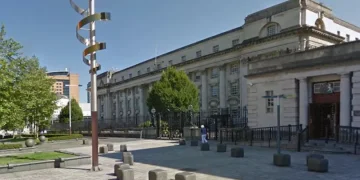After a prolonged legal battle and a surge of discontent among motorists, London is bracing itself for the imminent rollout of the Ultra Low Emission Zone (Ulez) expansion, scheduled to be operational from Tuesday.
Originally introduced in 2019 with the aim of cleansing the city’s air, the expansion will now encompass all London boroughs.
The move has been staunchly supported by London Mayor Sadiq Khan, who has championed the initiative to address air quality concerns.
Latest Development
Transport for London (TfL) reports that nine out of every 10 cars seen on outer London roads daily adhere to the Ulez standards and thus won’t be subjected to the charge, despite the expansion.
However, data from the Driver and Vehicle Licensing Agency, obtained by the RAC, paints a contrasting picture.
An estimated 691,559 licensed cars across London are expected to be non-compliant. These figures do not factor in other vehicles like vans, lorries, or those entering London from neighbouring counties.
Petrol cars registered post-2005 and most diesel cars registered after September 2015 will be exempt from the charge.
The fee for most non-compliant vehicles is set at £12.50, applicable every day of the year except Christmas day. Fines for non-compliance will amount to £160, with a reduction to £60 for prompt payment.
Comments and Reactions
The Ulez expansion has triggered fervent opposition, particularly in the outer London boroughs. This resistance comes despite the mayor’s announcement that Londoners with polluting cars can now access grants of up to £2,000 to transition to greener models.
Small businesses can also receive £21,000 to retire up to three vans. London Mayor Khan successfully defended the Ulez expansion against legal challenges from five councils, including Bexley, Bromley, Harrow, Hillingdon, and Surrey County Council.
Moreover, the Ulez cameras, designed to monitor compliance, have borne the brunt of public ire. Over a four-month period, more than 300 cameras were vandalized or stolen, revealing the intensity of opposition against the measure.
Possible Predictions
As the Ulez expansion takes effect, Londoners’ reactions remain divided. The mayor’s efforts to incentivize greener vehicle ownership might sway some towards adopting environmentally friendly options.
However, resistance from those who see the initiative as unjustly punitive could persist.
It’s plausible that the clash between the push for cleaner air and the reluctance to embrace change might shape the Ulez expansion’s journey forward.
Looking ahead, the Ulez expansion’s impact on air quality and public sentiment will be under scrutiny.
The level of participation, compliance, and the broader public’s engagement with cleaner transportation alternatives will likely determine the ultimate success of the initiative.
As London takes a significant step toward combating pollution, the city finds itself at a crossroads of change, where environmental concerns intersect with public convenience and financial considerations.












